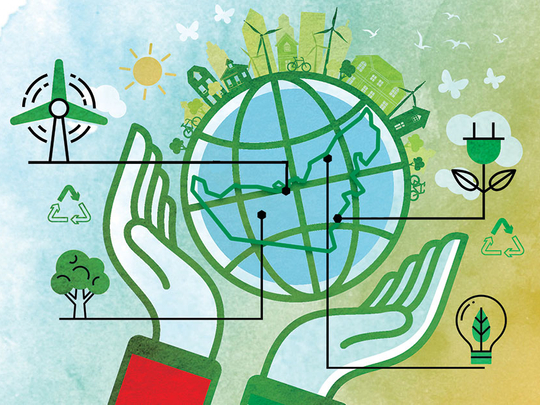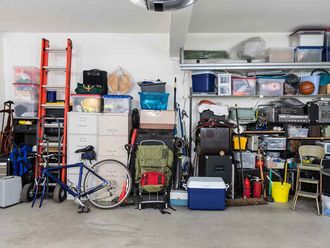
The ancient Greek philosopher Aristotle’s said an ideal city besides performing its primary function of providing shelter and protection for its inhabitants should be a source of happiness.
In fact, the idea of “a sustainable and happy city” is rooted in the hearts, minds and decisions of the UAE’s leaders. Thus, it is not strange to see one of the most important streets of Dubai called “Happiness Street”.
The UAE is already emerging as a global leader in sustainability. This pattern became increasingly apparent after Dubai recently set targets to become one of the most sustainable cities by 2020 especially with its preparation to host the most sustainable World Expo in 2020.
A city like a living person has dreams and worries, challenges and ambitions. As our communities become more urbanised, our cities need to get smarter to handle in a sustainable way this large-scale urbanisation to meet citizens’ needs and aspirations for an improved quality of life, reduced pollution, increased efficiency, better services and decreased costs of living. In short, it should offer a “happy community”.
The Arab region, according to UNDP data, is rapidly urbanising. There is an increase in urban growth of 2.5 per cent (2015). Today, more than half of the Arab population (57 per cent) lives in urban areas on an average.
The Gulf Cooperation Council (GCC) is one of the most urbanised areas in the world, with more than 70 per cent of the population living in urban areas; Kuwait and Qatar are almost 100 per cent urbanised. Urban expansion in the region has been fuelled by both internal migration and the influx of expatriate workers attracted by the region’s economic prosperity and employment opportunities.
Thus, the universal agenda for sustainable development Goals (SDGs) has a dedicated goal that is to “make cities and human settlements inclusive, safe, resilient and sustainable”.
So, sustainable cities in our modern world play a crucial rule in ensuring a happy life as well as realising many other SDGs on energy, water, climate change, employment. A sustainable and happy city is a magnet for citizens, residents, visitors, tourists and investors.
However, one must say that in many cases, the use of cheap, sustainable, traditional local knowledge in a city can be more economical, sustainable and smarter. For instance, conventional techniques of shading, lighting and traditional building designs can be more effective and sustainable.
In modern cities of the Arabian Gulf, authorities have to adopt a mix of both traditional and modern technological innovations. For instance, in some areas of the city, especially old ones, traditional modes of transport can be cheap, sustainable, consumer-friendly and can even act as a tourist attraction. In new quarters of the cities, authorities can depend on new, smart and clean means of transportation.
It is worth mentioning that there are many initiatives across the region to establish and/or make cities more sustainable. Makkah in the Kingdom of Saudi Arabia, Amman in Jordan and Elgouna, Egypt are examples.
However, the UAE is taking the lead in managing sustainable cities of tomorrow that provide opportunities for real happiness for residents and visitors, and ensuring a balance between economic, social needs and environmental goals. Both Abu Dhabi and Dubai have strategic plans in this regard as reflected in Abu Dhabi’s Vision 2030, Dubai 2021 and UAE Energy 2050 strategy.
Masdar City in Abu Dhabi is aiming to be one of the world’s most sustainable urban developments globally. In Dubai too, the city is a good example of sustainable and happy urban development that utilise renewable energy, grey and black water separation system, and treated water reused for green irrigation and sustainable mobility. In addition, it offers economic benefits including a full exemption from service charges, as well as a significant reduction in water and electricity bills. All this comes with social and sports facilities and educational and recreational activities to create a healthy, safe, and happy community.
The UAE has tremendous potential to be a role model for aspiring sustainable and happy cities as it has a strong political will, young population and sustainable technological solutions. The future of urbanism is in sustainable cities and UAE is proving to be a pioneer.
Dr Mohamed Abdel Raouf is an independent environment researcher.










